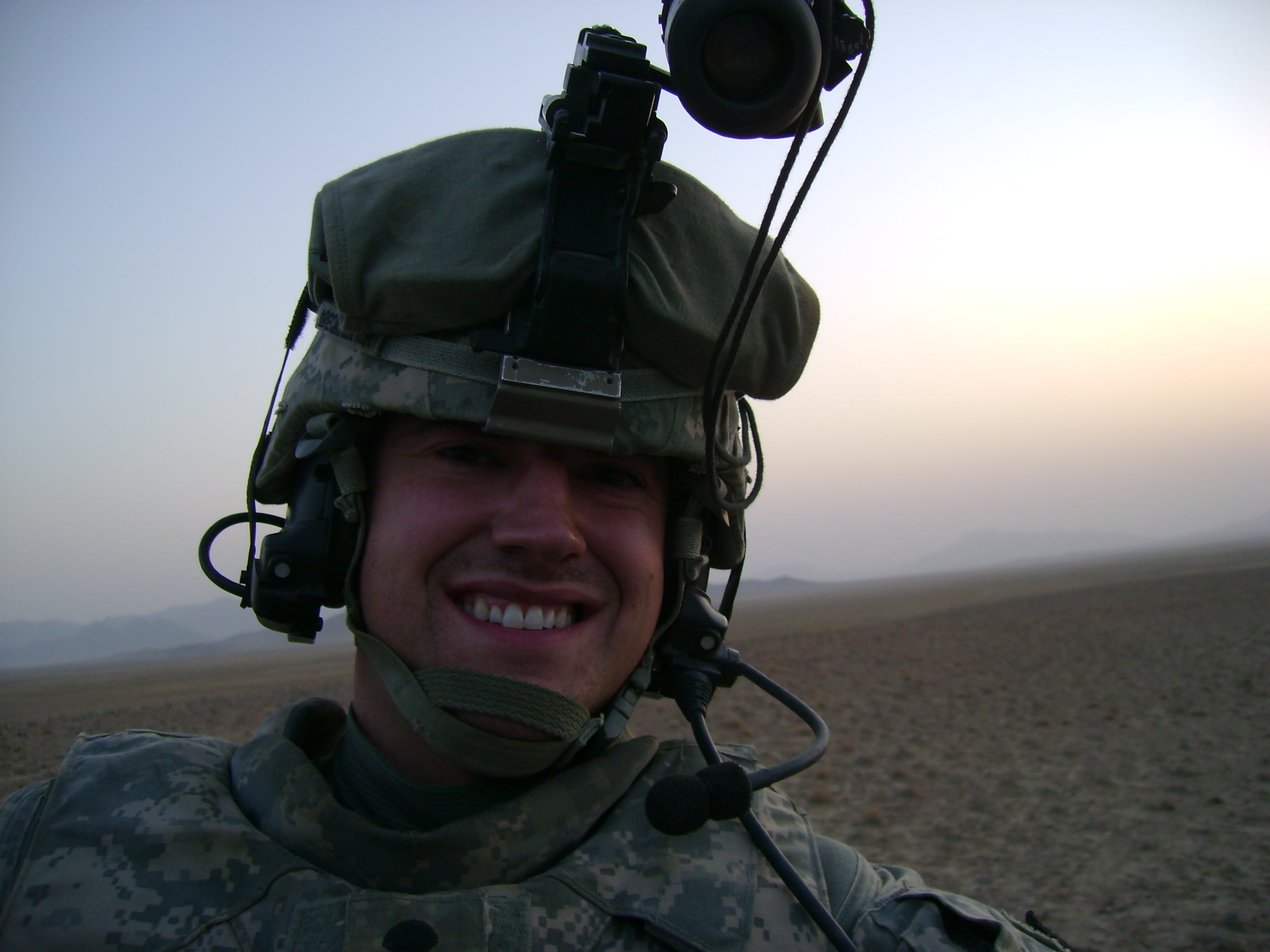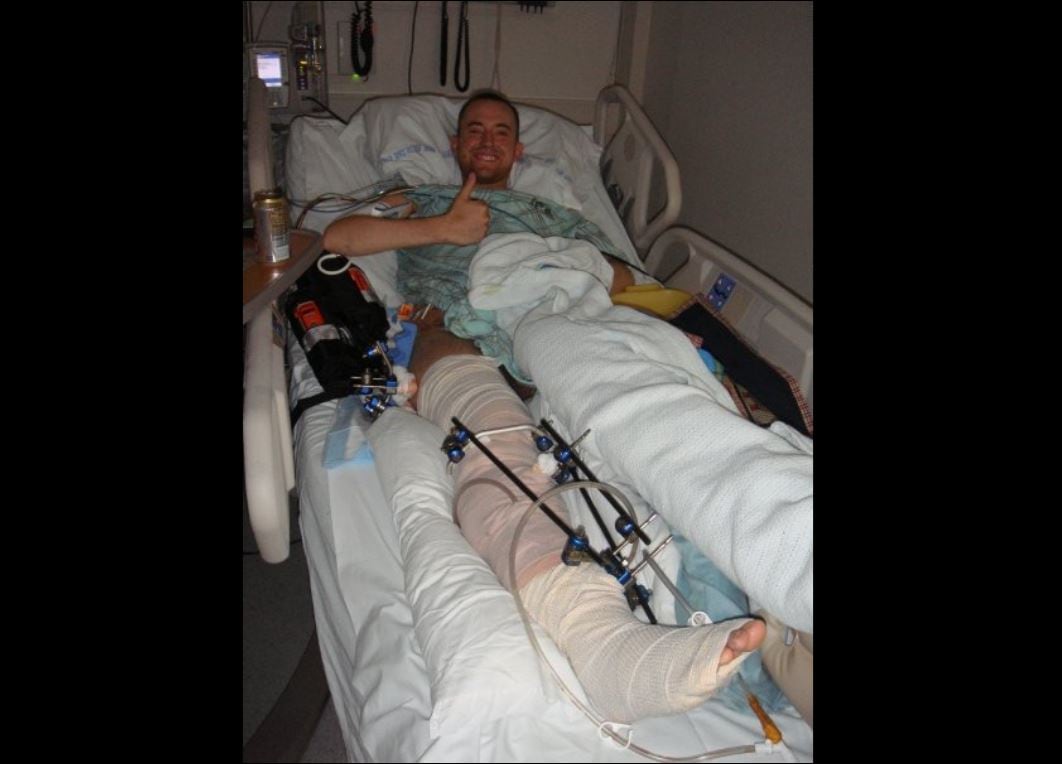Few people can say they’ve climbed the tallest peak on all seven continents. Fewer still have also been wounded in combat and received the Purple Heart. In fact, there is only one.
Benjamin Breckheimer enlisted as an Army reservist in 2002 through the Army’s Delayed Entry Program and arrived at Fort Benning, Georgia, for basic training in 2003. He spent three years there as a reservist.
“I kind of felt like I was wasting my time,” he told Army Times.
Breckheimer requested a release from his unit so he could join as an active-duty service member, and his request was granted. He was reassigned to Fort Sam Houston, Texas, as an operating room specialist.
Still, it wasn’t enough, and he made it known to his chain of command that his intentions in joining active duty were to be deployed.
Again, his request was granted, and he was sent to Baghdad, Iraq, alongside a Fort Carson, Colorado, medical unit for a year-long deployment in the Green Zone at Ibn Sina Hospital. The first time he saw someone die, Breckheimer said he remembered thinking how unfair it was that this service member was dying for him, and yet he was in relative safety.
When Breckheimer returned home, he reclassed to become a cavalry scout and was assigned to a Stryker brigade out of Fort Lewis, Washington. Breckheimer deployed once again in 2009 — this time to Afghanistan.
During a mission just months into his deployment, the Stryker vehicle Breckheimer was driving ran over a pressure-plate IED.
The resulting explosion left Breckheimer with a concussion, a perforated eardrum, fractures in both femurs and a lower right leg left attached by only an inch of muscle and skin. He was transported to Kandahar Airfield, where surgeons were able to reattach his leg.

A doctor he worked with at Fort Sam Houston had told him that he didn’t want to see Breckheimer on his table after the soldier requested to become a cavalry scout. That doctor ended up working on him in the five days it took Breckheimer to transition back to the United States.
“I was a little naïve about my injuries,” Breckheimer said. “I expected to get back into the fighting with my buddies.”
Instead, he was medically retired in 2013 after spending 4 years in a limb salvage program.
Shortly after he was released from his service, his first wife asked him for a divorce. “The divorce hurt me more than the IED blast ever did,” Breckheimer said.
This led him to a dark place, full of drinking and suicidal thoughts. One day, as he was contemplating taking his own life, he looked at his dog and something clicked.
“Instead of taking away my pain, I would be introducing all this pain into the world for my family and friends,” Breckheimer said.
It was then that he knew he needed to do something with his life. He said a “very childish” part of him wanted to climb Mount Everest in the hopes that it would impress his wife enough to come back.
He started training in 2014 by going to Mount Baker, a 10,000-foot peak, and Mount Rainier, 14,000 feet, in Washington state. He failed to reach both summits and began to backslide into his emotions.
A guide Breckheimer climbed with saw how much good being in the mountains had done for him and encouraged him to not give up.

Breckheimer was eventually invited to join a team of climbers who would be attempting to summit Mount Elbrus in the western part of the Caucasus. Breckheimer said he was intimidated by the prospect of attempting an 18,000-foot peak after failing to summit a 14,000 or even 10,000-foot peak. But he went anyway.
On Aug. 1, 2014, Breckheimer reached Elbrus’ peak — the highest mountain in Europe. As he stood on the summit, he took his wedding ring, which he had carried since his divorce in the hope that his wife would come back, and launched it as far as he could. He was no longer climbing for her.
Now he was climbing for himself.
“It felt like the weight of the world was lifted off me,” Breckheimer said.
After climbing Elbrus, Breckheimer attempted Everest for the first time in 2015 through the southern route. This attempt was stymied when an earthquake in Kathmandu caused an avalanche from a neighboring mountain, killing around twenty people and injuring even more.
“It was more terrifying than an IED,” Breckheimer said. “An IED is instant and you don’t really see it, it just happens.”

Breckheimer said it took him more than a year to decide that he wanted to continue with his goal of climbing all seven mountains. His next excursion was to Kilimanjaro, Africa’s highest peak. He went in 2017 with a non-profit, One Team Colgan Foundation, which encourages resilience among veterans. That jumpstarted a spree of four more successful climbs.
Within a span of two years, Breckheimer was able to conquer Everest, Aconcagua, Carstensz Pyramid and Vincent in Antarctica.
His final challenge was Denali in Alaska. His first attempt in 2019 was stopped when inclement weather forced him and his group to abandon their climb and return to base.
A follow-up trip was planned for 2020, but COVID-19 put those plans on hold.
Finally, on June 13 of this year, Breckheimer summited what he considers to be the most difficult climb, Denali. His group took only two weeks, a full week less than they were permitted by the state and national parks services.
Breckheimer said he intends to take a year or two off his adventures to spend time with his wife and family before planning a ski trip to the South Pole.
He said he will continue to work with One Team Colgan Foundation to spread a message of resilience to military members and their families.
The foundation works with Purple Heart Summits to encourage veterans in their climbing adventures, and they are looking for a female Purple Heart recipient to become the first to summit Mount Everest.




